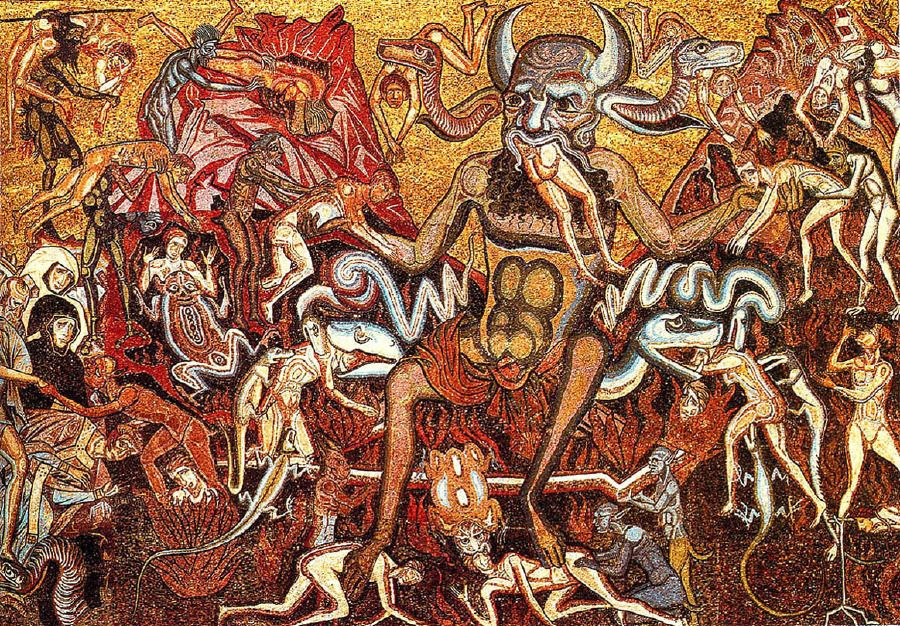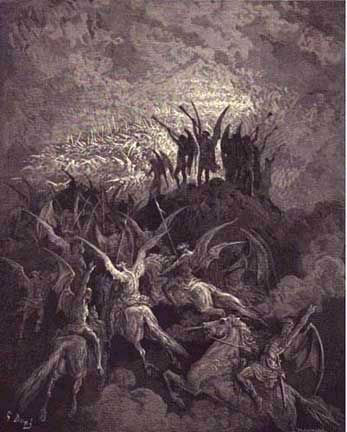Two Positive Arguments for Conditional Immortality (Annihilationism)
- brycehoeker
- Aug 11, 2021
- 6 min read

If you belong to most Christian denominations, you were likely taught that those who do not believe in Christ will spend the rest of eternity in constant suffering, oft-pictured as a lake of fire which is never extinguished. However, this argument is made primarily with improperly interpreted passages of Scripture and doesn't hold up to Scriptural and philosophical arguments. I'll cover those passages in a later post, but for now, let's examine two positive arguments for conditionalism. And no, I'm not going to be making the typical Atheist argument that "finite crimes aren't deserving of infinite punishments". I won't go in-depth here, but I would argue that human sins are indeed worthy of infinite punishment, and annihilationism is in fact a gracious act on the part of God. But, I'll leave that for another post.
ARGUMENT ONE:
The first argument is the reason why this belief has been named conditional immortality. Essentially, the Bible teaches that the reward for those who believe is eternal life and that this reward is conditional (in that it necessitates belief in Christ). Let's look at a few examples of this teaching in Scripture:
1 John 2:17 says that the world and its desires "pass away", yet those who do God's will live forever*. This language seems to imply that only the saved live forever and that everything else fades into nonexistence.
1 John 5:11-12 says that God has given us eternal life through Christ, and that "the one who has the Son has the life; the one who does not have the Son of God does not have the life." This passage doesn't say that those who are in the Son have the "good" eternal life and that those who are not in the Son have the "bad" eternal life, rather it says that there is no eternal life at all for those who are not in the Son!
Continuing with 1 John, verse 5:13 says that the author wrote these things so that those who believe in the Son of God may know that they have eternal life. If eternal life were for everyone, why would the believers need to be reassured that they indeed have it?
Romans 6:23 (which is probably one of the most regularly memorized verses among Christian youth) states that, though "the wages of sin is death," the "gracious gift of God is eternal life in Christ Jesus our Lord". I don't want to make an argument from silence here, but it seems reasonable that - if Paul believed that both saved and unsaved peoples had eternal life, he would have been more specific regarding what gift the saved received from Christ. An eternal conscious torment (ECT) writing of this passage would likely sound more like, "for the wages of sin is eternal punishment, but the gracious gift of God is an eternal blessing in Christ Jesus our Lord."
John 3:36 says that those who believe in the Son have eternal life, but those who do not obey the Son "will not see life", and "the wrath of God remains on him." One might argue that the use of the word "remains" implies that the wrath remains after their annihilation. However, this is reading one's own bias too much into the passage. Instead, it could either mean that God's wrath "remains" on them at the time of their death, or that God's wrath remains even though the individual may not remain.
The Bible also symbolizes eternal life by using the image of the tree of life from the Garden of Eden. It often refers to the access of this tree as being exclusive to the saved, such as in Revelation 22:14, where it says that, "blessed are those who wash their robes, so that they will have the right to the tree of life, and may enter the city by the gates." This passage, along with the rest of Revelation, is highly symbolic. The washing of the robes signifies the cleansing of oneself through belief in Christ, the tree of life symbolizes eternal life, and the city symbolizes God's eternal Kingdom. It is implied in these verses that those who do not wash their robes (the unsaved) do not get the same access to the tree of life (eternal life), and this point is further driven home by the fact that the city is gated, implying that none may come in except for those who are welcomed through by the King within the city's walls (God).
Speaking of symbolism and the tree of life, let's look at Adam and Eve. Whether or not you agree that the story of Adam and Eve is not a literal, historical account, we can both agree that Adam is meant to represent humanity (and is often used by Biblical authors as a foil to Christ) and that the events of the Garden of Eden are meant to be symbolic of mankind's story. We are created by God to be perfect stewards of His creation, yet we fall and must face the consequences of our actions. In this story, Adam and Eve are barred forever from access to the tree of life, meaning that they will die (which God tells them in no uncertain terms). It is only through Jesus that the story's true ending is revealed: that access to the Garden will eventually be restored for those who believe (although we don't deserve it) by the grace of God!
I could go on and on, but let's end at what is probably the most well-known passage in the entire Bible, John 3:16. God gave His only Son so that believers would have eternal life rather than perishing. We've seen this language over and over again in these passages (and many others throughout Scripture). It is clear that only believers have eternal life, and nonbelievers perish.
ARGUMENT TWO:
The second argument is based on the work Christ did for us on the cross. If Christ truly took our full punishment and paid our full debt on the cross, then he had to suffer the punishment that we deserved. Isaiah 53:5 states that "He was pierced for our offenses, He was crushed for our wrongdoings; the punishment for our well-being was laid upon Him, and by His wounds we are healed. It goes on to call Christ a "guilt-offering" in verse 10. Colossians 2:14 also states that our sin-debt to God was paid in full when it was nailed to the cross.
If Christ took the full punishment for our sins, and that punishment is an eternity in Hell, then would He not have to suffer for eternity? An eternity of suffering can't be condensed into three days, nor can any infinity be contained in a finite period. After all, the Bible doesn't say that the punishment Christ took was being thrown in the lake of fire, but instead, it says that the punishment He took was death. He suffered temporarily, and then His humanness was deemed by the Father to be unworthy and was therefore annihilated (of course, His divineness could not have been annihilated, as that would have also resulted in the Father and the Spirit being nonexistent, which is impossible as the existence of all things is necessarily dependent on God). This punishment (death and nonexistence) is still eternal, but the Father (who is Christ) defeated death by bringing the body of Christ from nonexistence back into existence, a feat which He also performed at the beginning when He created everything from nothing!
So then, if one believes that we are doomed to ECT and that Christ did not suffer ECT, it could lead to a slippery slope where Christ did not truly take our full punishment and atone for our sins, which would be heresy. This is not to say that all believers in ECT are heretics or are not saved. ECT does have seemingly good scriptural support, and those who hold that belief are not - in my view - unsaved, stupid, ignorant, or wicked. I will get into those scriptural proofs of ECT in future posts, where I will describe that they are either interpreted incorrectly or lacking in the context which changes their theological meanings.
I know that conditionalism is a minority opinion in modern Christianity, but I truly believe that it has more scriptural support than ECT (and way more than Universalism, which I would consider to be heresy). I hope that a reading of this article will cause self-reflection about this topic, so that one may either be converted to a conditionalist way of thinking or strengthened in their own view of ECT (so long as proper reason and scriptural support is used). At the very least, I hope that you as the reader comes away realizing that proponents of conditionalism do have good scriptural and logical support for this view so that conditionalists aren't seen as irrational heretics.
For further reading, I would highly encourage that you check out Chris Date's various books and videos, including interviews on the Capturing Christianity Youtube channel and his "Rethinking Hell" podcast.
*All verse references come from the NASB 2020.




Comments